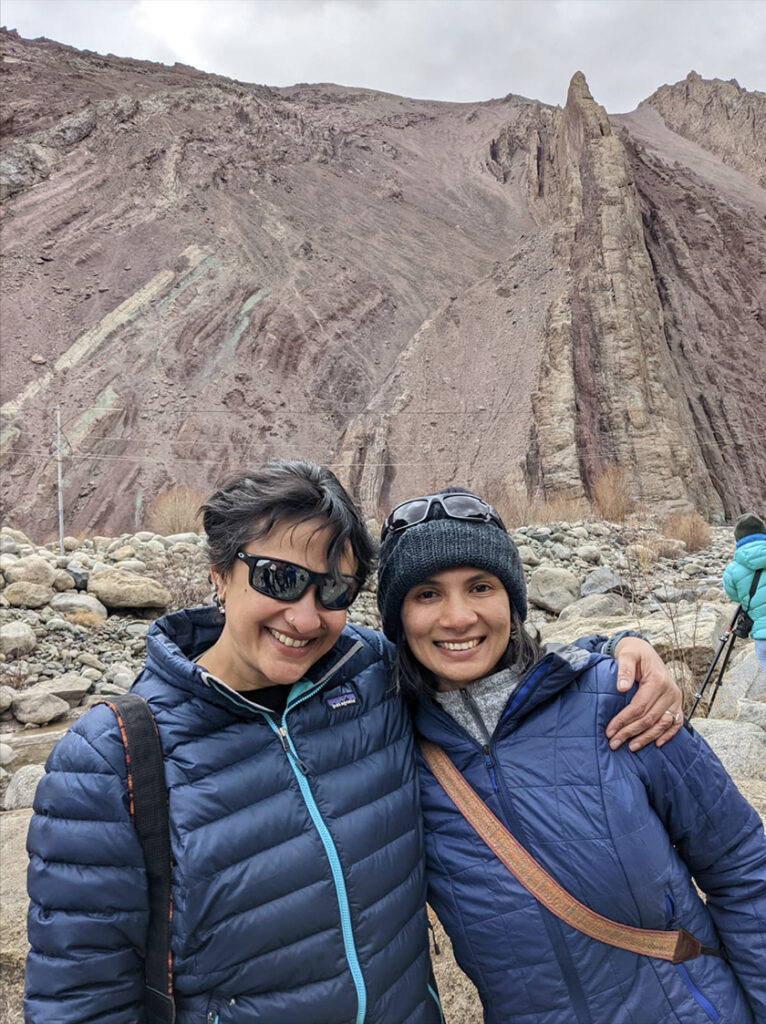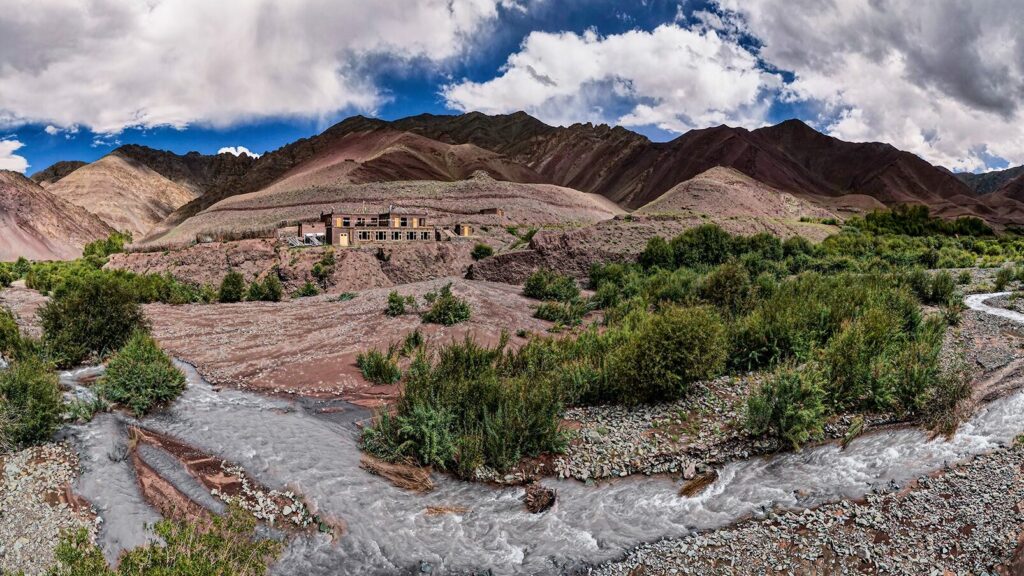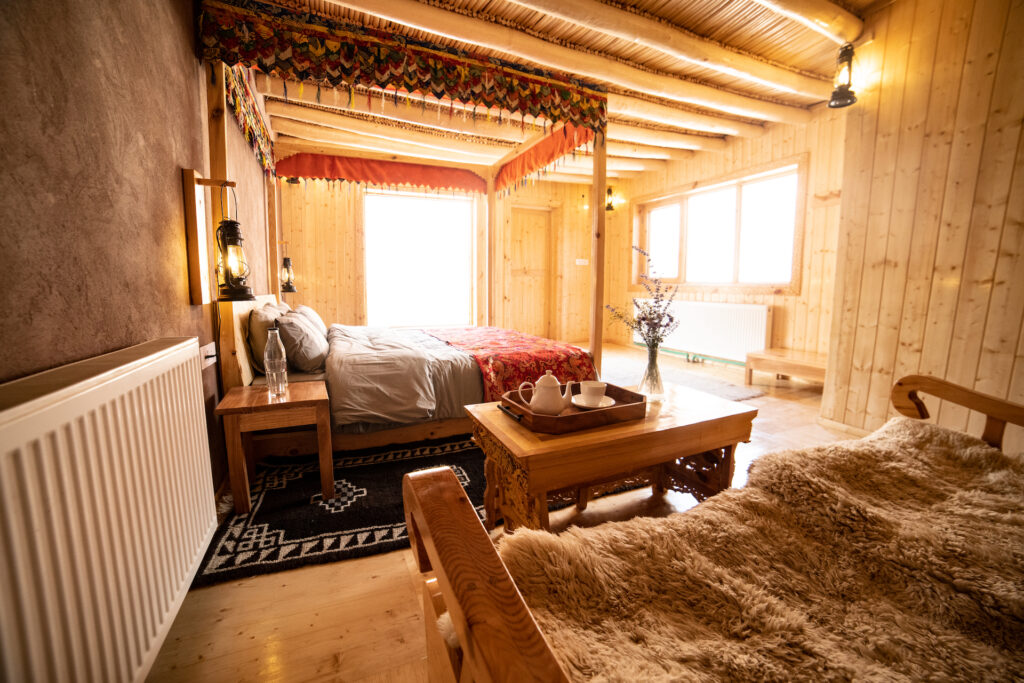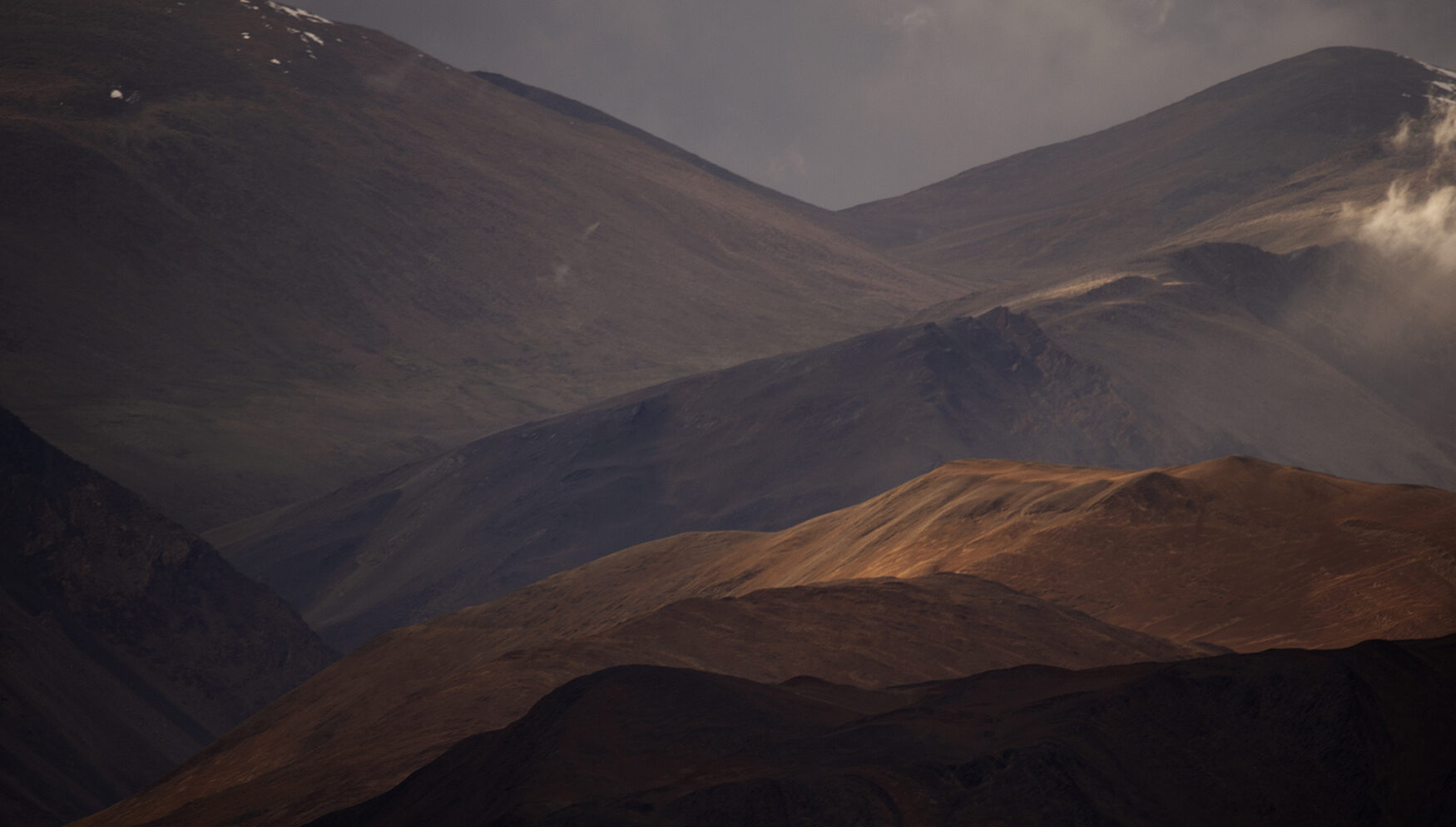OUR NAME:
Shandaar is a take on the Ladakhi word for Snow Leopard, “Shan.” We expanded it with the suffix “-daar” that means “keeper of” in Persian, and “abode” in Arabic. Thus, the name is a nod to the spectacular home of the elusive big cat. Of course, pronounced slightly differently, “Shandaar” also speaks to “dignity,” which we intend to be a hallmark of every one of our expeditions.

WHO WE ARE:
Payal Mehta is one of the foremost nature guides in India today. Trained by Taj Safaris, she has been leading expeditions with guests from all over the world in search for the snow leopard in Ladakh for over a decade. She also leads wildlife tours across India, Nepal, Bhutan, Sri Lanka, and Borneo. Her training as a geologist and in mountaineering make her and invaluable leader on this trip.
Arati Kumar-Rao is an environmental writer, photographer, & National Geographic Explorer, who has been documenting landscapes across the Indian subcontinent for over a decade. Drawing on her decade-long experiences, she wrote Marginlands: Indian Landscapes On The Brink, which was recently published by PanMacmillan India (Picador). She also leads National Geographic Expeditions in India.

OUR PARTNERS, LUNGMAR REMOTE CAMP:
The LUNGMĀR Remote Camp is High Asia’s premier wilderness camp. At 12,000 feet above sea level, in the heart of 25,000 hectares of prime habitat, and supported by an elite team of specialists, the LUNGMĀR is your base for perhaps the greatest quest of all: a search for the snow leopard.

The LUNGMĀR is a remote bush camp style property centered around a phenomenal wildlife experience. Their take on the expedition life combines the excitement of Himalayan adventure, a deep sense of place, and some incredible comforts to create a truly singular and iconic journey.
The team combines deep experience operating highly-awarded snow leopard tours with pioneering conservation work. Community based conservation is a central tenet, as 99% of the LUNGMĀR‘s team hail from snow leopard landscapes.
For each guest that stays at camp, INR 30,000 is contributed towards predator proof corrals, reducing human-wildlife conflict, in the region.
THE SHANDAAR PHILOSOPHY:
We travel, initially, to lose ourselves; and we travel, next to find ourselves. We travel to open our hearts and eyes and learn more about the world than our newspapers will accommodate. .… And we travel, in essence, to become young fools again – to slow time down and get taken in, and fall in love once more.
Pico Ier
Travel can indeed be a wonderful, wondrous thing — refreshing us, shaking up our world views, and making us rethink our place and purpose in the world. At Shandaar, we are also acutely aware of how the manner in which travel can affect not only the places we visit, but also the world at large.
In keeping with our philosophy “Conscious Travel, Treading Lightly,” each of our trips are an effort towards as light a footprint as we can have, with as rich an experience as we can offer you in our time together.
Here’s what you can expect from your time with us:
A Sense Of Place:
Who better to learn from about Ladakh than the Ladakhis themselves? With this in mind, we have designed the trip to maximise interactions at every point with people from the land. We will have curated talks, as well as fireside chats, with local women and men, so that you come away with a deeper understanding of the land, its history — natural and social, and contemporary issues.
Treading Lightly:
One big telltale of a tourist or pilgrimage place in India is often piles of trash — plates, cups, straws, plastic bags — strewn by the wayside. Ladakh too has a big solid waste management problem, leading to an unhealthy proliferation of stray dogs which is now threatening even the wildlife. We are taking precautions to not add to this problem.
Zero-Waste/ Biodegradable Toiletries:
All our rooms will have dispensers for shower gel, soap, shampoo. If you are particular about the brands you use, kindly carry your own toiletries in containers that you will carry back home to continue using or throw away responsibly.
Wet wipes are non-biodegradable, unless it is specifically mentioned otherwise. Mother Sparsh and Bambo Nature are some of the biodegradable brands available in India (Amazon has them) if you would like to pick that up.
Water: Plastic water-bottles contribute in a big way to the trash left at tourist sites. We strongly recommend all of us bring our own reusable, non-plastic bottles that we can frequently refill everywhere with safe drinking water that will be made available to us.
Food: We arrange a special menu with a combination of local, traditional food and a small variety of cuisines that are healthy and nutritious, suited to what the body needs in the high altitude of the plateau.
Carbon footprint: Travel, by its very nature, is carbon intensive (unless you walk or cycle everywhere!). One economy flight from Bangalore to Leh and back will emit 0.66 tonnes of CO2. For our group, that means roughly 12 tonnes of CO2 emitted. This is the disproportionate bulk of our emissions (car within Ladakh is minuscule but non-zero in comparison). It takes the equivalent of ~ 40 trees to offset one tonne of CO2. We, at Shandaar, are acutely aware that random tree-planting drives, without the restoration of an ecosystem in mind, is not optimal and can be instead, harmful.
We will be partnering with known, trusted groups who are engaged in scientific and mindful ecosystem restoration to offset the carbon footprint of each trip. While offsetting is fraught, it remains one of the ways we can employ to decrease our impact. This may mean fewer trips in a year, but it is something we want to do in a way such that we tread as lightly as possible on our Earth.
We hope this has given you a sense of what our vision for our trip in April is. We welcome any feedback or suggestions to make it even more sustainable and memorable for you.
Warmest regards,
Payal & Arati

